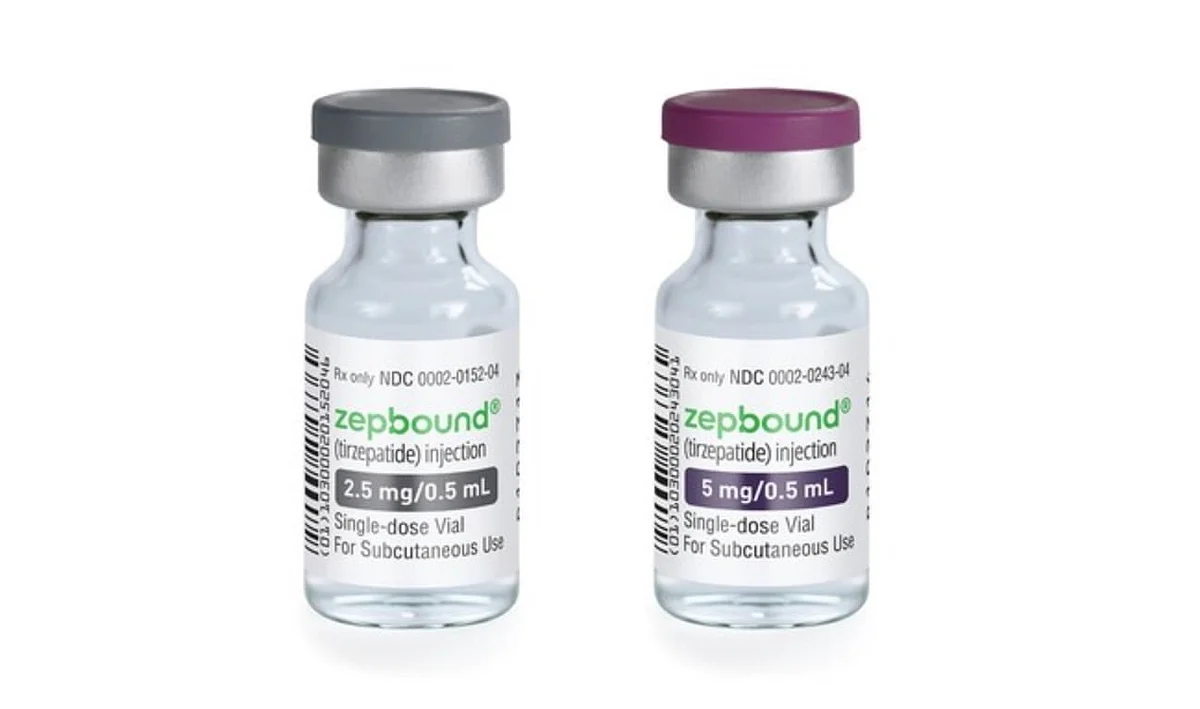Menopause Hormone Therapy Boosts GLP-1 Drug Effectiveness, Researchers Say
By Dennis Thompson HealthDay Reporter
 via HealthDay
via HealthDayMONDAY, July 14, 2025 — Good news for women of a certain age: Hormone replacement therapy for menopause appears to boost the effectiveness of GLP-1 weight loss drugs like Wegovy and Zepbound, a new study says.
Women using tirzepatide (Zepbound) lost more weight if they also were taking hormone therapy — 17% of body weight lost versus 14% after a median 18 months, researchers reported Saturday at the Endocrine Society’s annual meeting in San Francisco.
Further, more women taking Zepbound and hormone therapy achieved at least 20% total body weight loss, with 45% meeting this goal compared to 18% of those not on hormone therapy.
“These data are the first to show the combined use of tirzepatide and menopause hormone therapy significantly increases treatment effectiveness in postmenopausal women,” presenting investigator Dr. Regina Castaneda, a research fellow in endocrinology at the Mayo Clinic in Jacksonville, Fla, said in a news release.
Casteneda noted that previous studies of semaglutide (Ozempic/Wegovy) yielded similar findings.
“Achieving these outcomes with a second obesity medication may indicate a broader efficacy trend for pairing these two classes of medications,” Castenada said.
More women are using hormone therapy to manage menopause symptoms like hot flashes and night sweats, following research that found such therapy didn’t increase risk of diseases like breast cancer and heart disease as dramatically as previously thought.
Menopause-related hormone changes often result in increased belly fat and decreased muscle mass, as well as changes in metabolism that contribute to weight gain, researchers said in background notes.
For the new study, researchers tracked the weight of 120 postmenopausal women prescribed Zepbound. Of those women, 40 were also using hormone therapy and 80 weren’t.
Glucagon-like peptide-1 (GLP-1) drugs mimic the GLP-1 hormone, which helps control insulin and blood sugar levels, decreases appetite and slows digestion of food.
“The information garnered through this new study provides important insights to develop more effective and personalized weight management interventions to reduce a postmenopausal woman’s risk of overweight and obesity-related health complications,” senior researcher Dr. Maria Daniela Hurtado Andrade, an assistant professor of medicine at the Mayo Clinic, said in a news release.
“This study underscores the urgent need for further research to better understand how obesity medications and menopause hormone therapy work together,” Andrade added.
“Gaining this knowledge could greatly improve the health and well-being of millions of postmenopausal women," she added. "It also points to the need for better strategies to make these treatments more accessible and available to those who need them.”
However, researchers noted that larger studies involving more women are needed to confirm their findings and figure out why hormone therapy might boost GLP-1 drug effectiveness.
Findings presented at medical meetings should be considered preliminary until published in a peer-reviewed journal.
Sources
Disclaimer: Statistical data in medical articles provide general trends and do not pertain to individuals. Individual factors can vary greatly. Always seek personalized medical advice for individual healthcare decisions.
Source: HealthDay
Posted : 2025-07-15 06:00
Read more

- FDA Approves Label Update for Kite’s Yescarta for Relapsed/Refractory Primary Central Nervous System Lymphoma
- Capacitive-Resistive Monopolar Radiofrequency Appears Safe, Effective for Genitourinary Syndrome of Menopause
- Nighttime Road Traffic Noise Tied to Higher Cholesterol, Blood Lipid Levels
- Deciphera Pharmaceuticals Announces U.S. Food and Drug Administration Acceptance for Filing of New Drug Application for Tirabrutinib in Patients with Relapsed or Refractory PCNSL
- Disc Medicine Receives Complete Response Letter from FDA for Bitopertin for the Treatment of EPP
- Genentech’s Fenebrutinib Is the First Investigational Medicine in Over a Decade That Reduces Disability Progression in Primary Progressive Multiple Sclerosis (PPMS)
Disclaimer
Every effort has been made to ensure that the information provided by Drugslib.com is accurate, up-to-date, and complete, but no guarantee is made to that effect. Drug information contained herein may be time sensitive. Drugslib.com information has been compiled for use by healthcare practitioners and consumers in the United States and therefore Drugslib.com does not warrant that uses outside of the United States are appropriate, unless specifically indicated otherwise. Drugslib.com's drug information does not endorse drugs, diagnose patients or recommend therapy. Drugslib.com's drug information is an informational resource designed to assist licensed healthcare practitioners in caring for their patients and/or to serve consumers viewing this service as a supplement to, and not a substitute for, the expertise, skill, knowledge and judgment of healthcare practitioners.
The absence of a warning for a given drug or drug combination in no way should be construed to indicate that the drug or drug combination is safe, effective or appropriate for any given patient. Drugslib.com does not assume any responsibility for any aspect of healthcare administered with the aid of information Drugslib.com provides. The information contained herein is not intended to cover all possible uses, directions, precautions, warnings, drug interactions, allergic reactions, or adverse effects. If you have questions about the drugs you are taking, check with your doctor, nurse or pharmacist.
Popular Keywords
- metformin obat apa
- alahan panjang
- glimepiride obat apa
- takikardia adalah
- erau ernie
- pradiabetes
- besar88
- atrofi adalah
- kutu anjing
- trakeostomi
- mayzent pi
- enbrel auto injector not working
- enbrel interactions
- lenvima life expectancy
- leqvio pi
- what is lenvima
- lenvima pi
- empagliflozin-linagliptin
- encourage foundation for enbrel
- qulipta drug interactions
